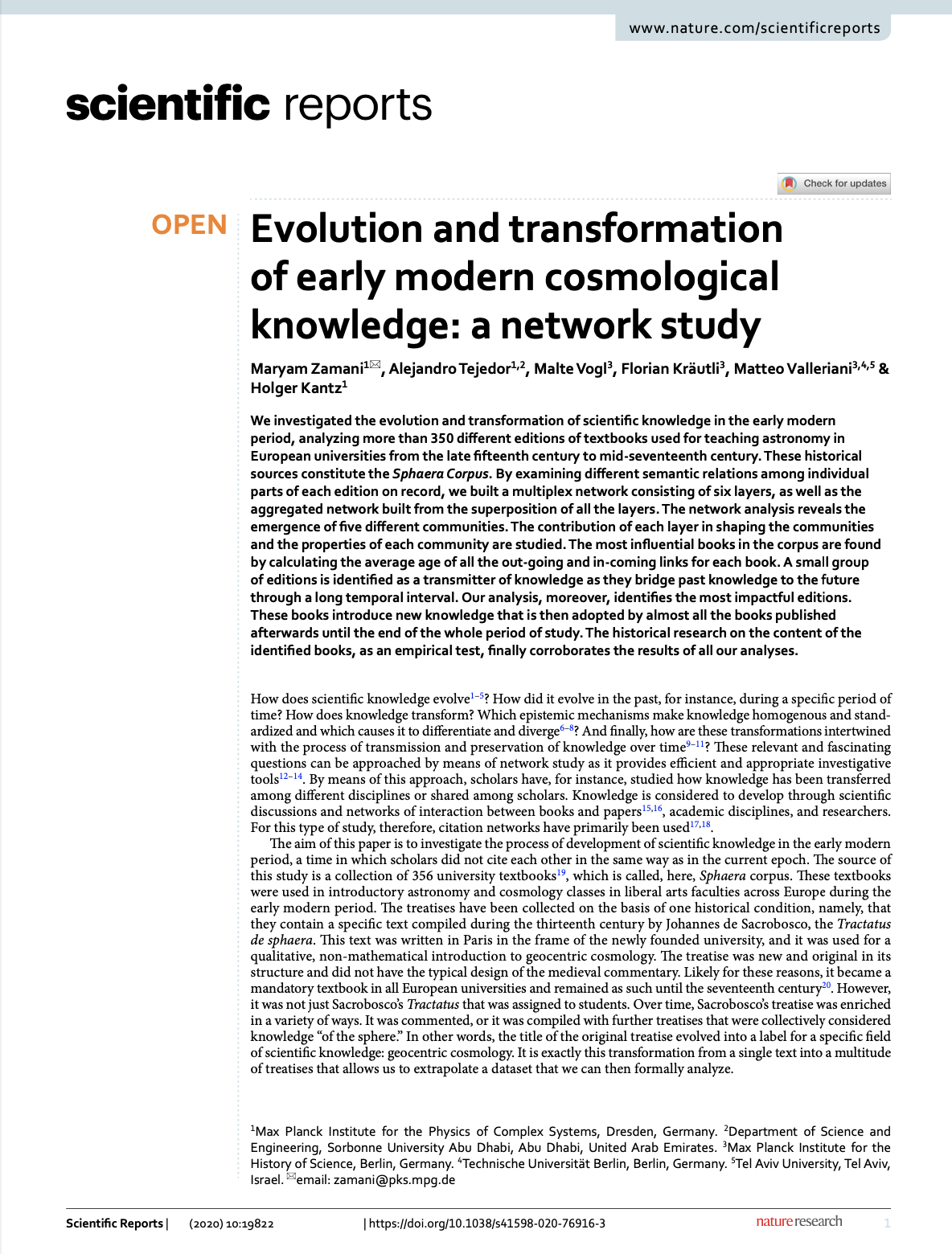Evolution and transformation of early modern cosmological knowledge: a network study
- Abstract
- We investigated the evolution and transformation of scientific knowledge in the early modern period, analyzing more than 350 different editions of textbooks used for teaching astronomy in European universities from the late fifteenth century to mid-seventeenth century. These historical sources constitute the Sphaera Corpus. By examining different semantic relations among individual parts of each edition on record, we built a multiplex network consisting of six layers, as well as the aggregated network built from the superposition of all the layers. The network analysis reveals the emergence of five different communities. The contribution of each layer in shaping the communities and the properties of each community are studied. The most influential books in the corpus are found by calculating the average age of all the out-going and in-coming links for each book. A small group of editions is identified as a transmitter of knowledge as they bridge past knowledge to the future through a long temporal interval. Our analysis, moreover, identifies the most impactful editions. These books introduce new knowledge that is then adopted by almost all the books published afterwards until the end of the whole period of study. The historical research on the content of the identified books, as an empirical test, finally corroborates the results of all our analyses.
- Authors
- Maryam Zamani, Alejandro Tejedor, Malte Vogl, Florian Kräutli, Matteo Valleriani & Holger Kantz
- Cite
- Zamani, M., Tejedor, A., Vogl, M. Kräutli, F., Valleriani, M. & Kantz, H. Evolution and transformation of early modern cosmological knowledge: a network study. Sci Rep 10, 19822 (2020). https://doi.org/10.1038/s41598-020-76916-3
